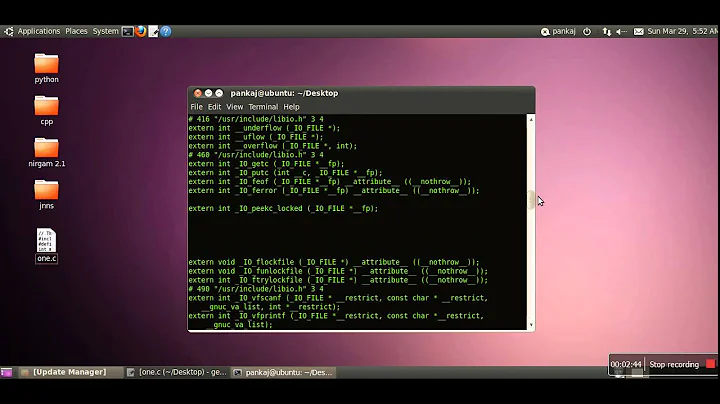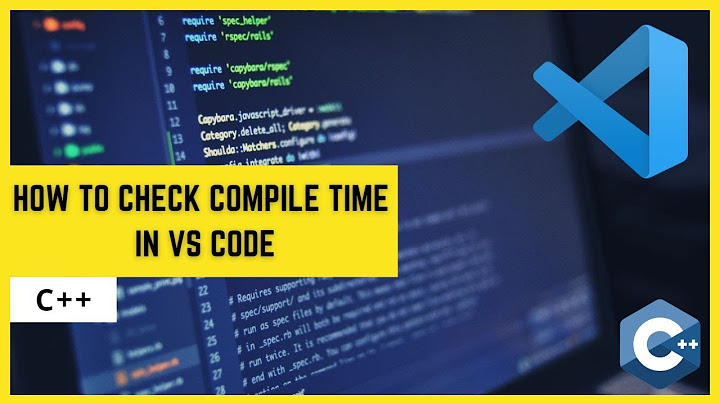How do I show the value of a #define at compile time in gcc
Solution 1
To display macros which aren't strings, stringify the macro:
#define STRINGIFY(s) XSTRINGIFY(s)
#define XSTRINGIFY(s) #s
#define ADEFINE 23
#pragma message ("ADEFINE=" STRINGIFY(ADEFINE))
If you have/want boost, you can use boost stringize to do it for you:
#include <boost/preprocessor/stringize.hpp>
#define ADEFINE 23
#pragma message ("ADEFINE=" BOOST_PP_STRINGIZE(ADEFINE))
Solution 2
I'm not sure if this will do what you want, but if you're only interested in this to debug the occasional macro problem (so it's not something you need displayed in a message for each compile), the following might work for you. Use gcc's -E -dD option to dump #define directives along with preprocessing output. Then pipe that through grep to see only the lines you want:
// test.c
#include <stdlib.h>
#include <stdio.h>
#define ADEFINE "23"
#include <string.h>
int main(int argc, char *argv[])
{
#undef ADEFINE
#define ADEFINE 42
return 0;
}
The command gcc -E -dD -c test.c | grep ADEFINE shows:
#define ADEFINE "23"
#undef ADEFINE
#define ADEFINE 42
Related videos on Youtube
John Lawrence Aspden
Programmer/Contractor/Consultant in Cambridge UK Lover of LISP, C and Unix. Friend of Python and ML. CV: http://www.aspden.com Clojure Blog: http://www.learningclojure.com Random Thoughts: http://johnlawrenceaspden.blogspot.com
Updated on June 14, 2022Comments
-
John Lawrence Aspden almost 2 years
So far I've got as far as:
#define ADEFINE "23" #pragma message ("ADEFINE" ADEFINE)Which works, but what if ADEFINE isn't a string?
#define ADEFINE 23 #pragma message ("ADEFINE" ADEFINE)causes:
warning: malformed ‘#pragma message’, ignored
Ideally I'd like to be able to deal with any value, including undefined.
-
John Lawrence Aspden about 12 yearsWell, I don't think my client is going to be very happy to have that added as a dependency, but that looks like an existence proof. Perhaps I should go and have a look at stringize.hpp
-
rob05c about 12 years@JohnLawrenceAspden I updated the answer with how to do it without boost (or any other library).
-
Paul over 5 yearsYour link is no longer active: "stringify the macro"

![What does int argc, char* argv[] mean?](https://i.ytimg.com/vi/aP1ijjeZc24/hq720.jpg?sqp=-oaymwEcCNAFEJQDSFXyq4qpAw4IARUAAIhCGAFwAcABBg==&rs=AOn4CLCPbrX1eyXpGbAsVHFjoR3TSoFcyQ)




